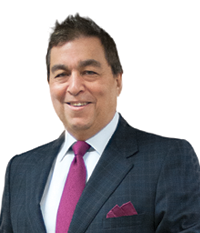
Illustration by Janet Atkinson
If you want to leave behind a legacy and ensure that your children and grandchildren will be taken care of, there are a number of important factors to consider.
The first step is to figure out what you want to do. Ask yourself the question: What do your children need? If you have two or more children, does one need more help than another? Essentially, the decision you need to make is between treating them equally or treating them fairly after taking into account their particular circumstances. Do they have a particular need such as funds for education or a home purchase? Consider these same questions when thinking about how you would like to provide for your grandchildren.
Next, you need to think about asset protection or what can be thought of as, putting a “moat” around the money. Say you want to leave money to your youngest child, but are concerned that he or she is not well acquainted with managing money. The better way to do this may be to use a trust, which will allow you to apply restrictions on how the money is accessed. The trust will have a trustee of your choosing to act as an administrator. This person should, first and foremost, be someone you trust. They should also be practical, good with finances and capable of dealing with lawyers and accountants.
The trustee will be tasked with following the terms of the trust that you decide upon when you create the trust. You can be strict and deem the money “for income only,” or you can be liberal and have no restrictions at all. As an alternative, you can leave all the decisions on distributions up to the trustee. In this instance, it would be even more essential that you have complete confidence in the trustee’s judgment. Some trusts use the attainment of various ages as a means of distributing out the money in a trust gradually. For example, you could release a quarter of the money when the recipient reaches the age of 30, and then release the remaining three quarters every 5 years, in order to ensure that it lasts for an extended period of time. Other trusts, sometimes referred to as Dynasty Trusts, are never fully distributed to the beneficiaries and stay in trust for generations.
Trusts are great for leaving large amounts of money. If you are interested in leaving a smaller amount of money and are not overly concerned with how quickly it is used, you could set up a college savings plan for your grandchildren.
Another option is to leave your IRA to your children. If you do this, make certain you get professional advice to ensure the better tax result. Under the right circumstances, when they inherit the account, they may be able to defer the income taxation of the account over their life expectancy, which is typically long period of time.
The better way to leave money behind for your children and grandchildren is to think about how you would like to help each individual and to ensure that the money you leave behind will be both protected and used appropriately.
Asset protection plans should be developed and implemented well before problems arise. Due to the fraudulent transfer laws, asset transfers that occur in close proximity to the filing of a lawsuit or bankruptcy can be interpreted by the court as a fraudulent transfer. Proper structuring of these assets is imperative. Please seek proper legal and tax advice prior to engaging in re-titling/structuring of any assets. Please note that laws are subject to change and can have an impact on your asset protection strategy.
Securities and Investment Advisory Services offered through NFP Advisor Services, LLC (NFPAS), member FINRA/SIPC. Wealth Preservations Solutions, LLC is a member of PartnersFinancial a platform of NFP Insurance Services, Inc (NFPISI), which is an affiliate of NFPAS. Wealth Preservation Solutions, LLC is not affiliated with NFPAS and NFPISI.
This article is for informational purposes only and is not intended as an offer or solicitation for the sale of any financial product or service or as a determination that any investment strategy is suitable for a specific investor. Investors should seek financial advice regarding the suitability of any investment strategy based on their objectives, financial situations, and individual needs. This article is not designed or intended to provide financial, tax, legal, accounting, or other professional advice since such advice always requires consideration of individual circumstances. Neither NFPAS nor its affiliates offer tax or legal advice.












